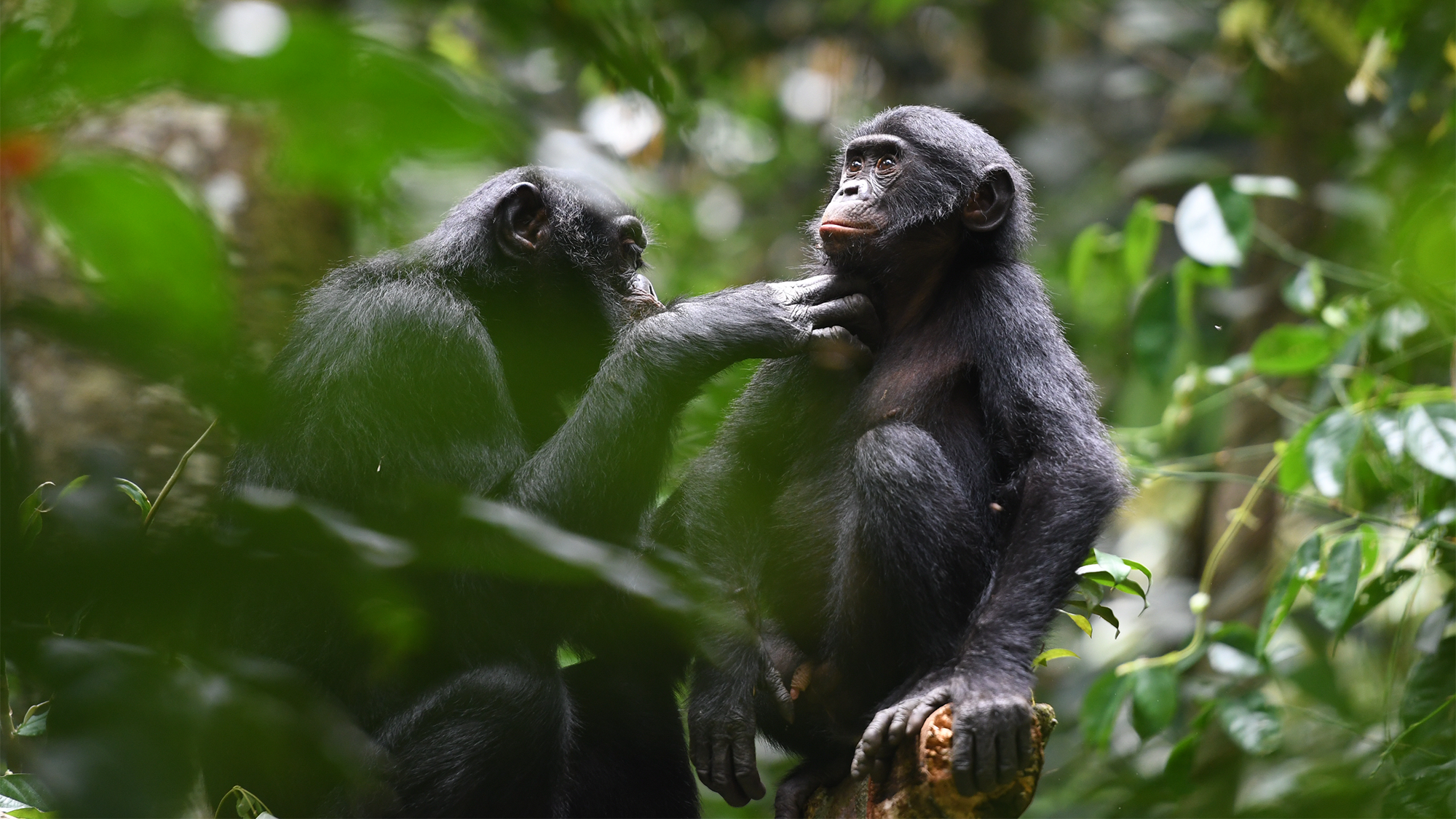

Cooperation between different groups of humans lies at the root of our social norms, traditions, and culture. Groups of a great ape species called bonobos may also work collaboratively with other cliques, according to a study published November 16 in the journal Science.
[Related: Bonobo ladies get to choose their mates and boy oh boy are they picky.]
Along with chimpanzees, bonobos are some of our closest living relatives. Studying their relationships can help scientists reconstruct what human traits appear to be more innate and how they evolve. However, both species of primate exhibit different levels of cooperation despite living in similar social groups that have multiple adult members of both sexes.
Chimpanzees appear to have more hostile relationships between different groups. Even lethal aggression is not uncommon. This hostility has led researchers to assume that group conflict is an innate part of human nature.
Bonobos might be telling a different story about how social structures and communities have evolved over time.
“The ability to study how cooperation emerges in a species so closely related to humans challenges existing theory, or at least provides insights into the conditions that promote between-group cooperation over conflict,’ study co-author and German Primate Center evolutionary biologist Liran Samuni said in a statement.
The study looked at two groups of 31 wild adult bonobos in the Kokolopori Bonobo Reserve in the Democratic Republic of Congo over a period of two years. When the different groups of bonobos met up, they often fed, rested, and traveled together.
“Tracking and observing multiple groups of bonobos in Kokolopori, we’re struck by the remarkable levels of tolerance between members of different groups,” Samuni said. “This tolerance paves the way for pro-social cooperative behaviors such as forming alliances and sharing food across groups, a stark contrast to what we see in chimpanzees.”
The authors also did not observe disputes that led to the lethal aggression that has been observed in chimpanzees. The bonobos did not not interact randomly between groups. Cooperation only happened among a select few group members.
“They preferentially interact with specific members of other groups who are more likely to return the favor, resulting in strong ties between pro-social individuals,” study co-author and Harvard University evolutionary biologist Martin Surbeck said in a statement. “Such connections are also key aspects of the cooperation seen in human societies. Bonobos show us that the ability to maintain peaceful between-group relationships while extending acts of pro-sociality and cooperation to out-group members is not uniquely human.”
[Related: Humans owe our evolutionary success to friendship.]
Cooperation between human groups leads to exchanges of ideas, knowledge, innovation, and resources. The Bonobos in the study also shared food resources across groups without any strong cultural influence. The authors believe that this challenges another existing idea that a shared culture and traits are necessary components for groups to cooperate with one another.
The study also highlights the importance of collaboration when studying bonobos that live in remote and largely inaccessible parts of the preserve.
“It is through strong collaborations with and the support of the local Mongandu population in Kokolopori, in whose ancestral forest the bonobos roam, that studies of this fascinating species become possible,” said Subeck, who directs research in the Kokolopori Bonobo Reserve. “Research sites like Kokolopori substantially contribute not only to our understanding of the species’ biology and our evolutionary history, but also play a vital role in the conservation of this endangered species.”
